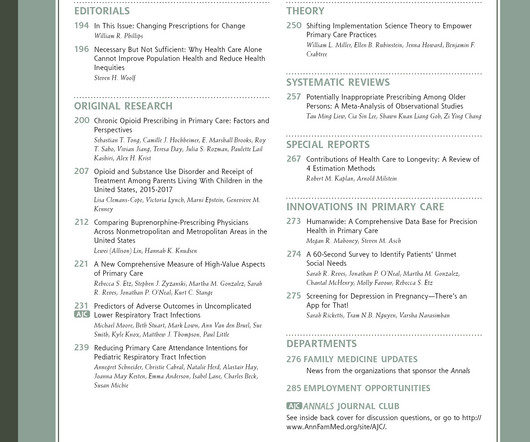Artificial Intelligence in Health Care
Integrated Care News by CFHA
MAY 1, 2025
That small win reminded me that artificial intelligence is already shaping the way our patients (and our families) search for health advice. Three reasons why learning Artificial Intelligence in health care may be a responsibility and not an option: 1. Evidence‑informed care was literally at his fingertips.


















Let's personalize your content